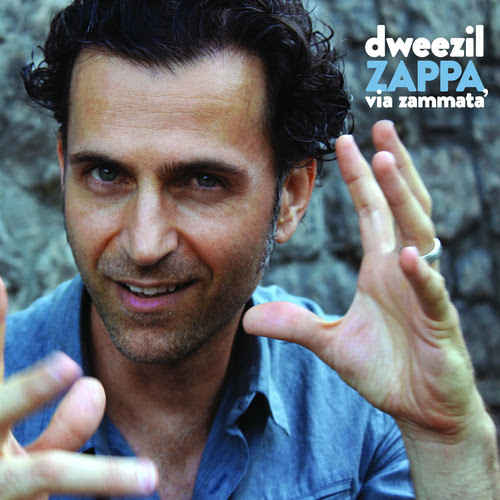
Dweezil Zappa returns to original songwriting with the Nov. 27 release of Via Zammata’ after having stepped away for a decade to uphold his father’s legacy.
He spent the past 10 years focused on introducing a new generation to Frank Zappa’s music, for which he snagged a Grammy in 2009 for Best Rock Instrumental Performance with his ensemble Zappa Plays Zappa.
Frank Zappa listed his son’s religion on his birth certificate as “musician” and gave him a Fender Music Master at age 6. Since that time Dweezil Zappa worked to find a balance between his father’s memory and his musical direction.
“I’ve learned so much in the past 10 years of playing my father’s music,” he said. “I wanted to be able to express new compositional, arranging and playing skills with my own new musical vocabulary.”
Dweezil Zappa said he also wanted to write new material that would reflect his current musical state of mind.
“This whole record is about finding my own voice in the world of music,” Zappa said. “I decided to collect songs I had written from the past that I felt had strong bones and build new arrangements around them.”
Produced, written and arranged by Dweezil Zappa, Via Zammata’ features a few special collaborations, such as the only co-write between Dweezil and Frank Zappa on the song “Dragon Master,” which premiers at Rolling Stone.
Frank Zappa wrote the lyrics for “Dragon Master” in 1988 and asked his son to set it to music.
“At that time, heavy metal was topping the charts and my dad was lampooning the genre with his lyrics,” Dweezil Zappa said. “For this record, I decided to fully embrace the epic metal-osity of his lyrics and create a deadly serious face melting riff to back them up.”
Via Zammata’ s second collaboration is with venerable actor John Malkovich, who reads Plato’s “Allegory of the Cave” over Dweezil Zappa’s original music on “Malkovich.”
Instrumentals on the album include “Truth,” with a string quartet recorded by legendary Beatles engineer Geoff Emerick, and “Funky 15,” a cinematic romp (in 15/8).
Zappa describes “Billionaire’s Son” as “a weird little audio movie and probably the quirkiest song on the record,” and “Hummin’” as “sci-fi easy listening.”
Much of the album was recorded on analog tape, a move that allowed Dweezil Zappa to create the intimate and multifarious sonic character of Via Zammata’.
Old school riffs and analog sounds conspire together on “Nothing,” which was recorded with the Stratocaster Jimi Hendrix had given Frank Zappa. Dweezil Zappa names the solo as one of his favorite things that he’s ever recorded.
“Feedback crept in and I felt I was channeling it from another place, almost as if someone else took over the guitar,” Dweezil Zappa said.
As stylistically varied as the audio landscape is, the songwriting keeps pace, taking the listener through unexpected twists and turns just like the Sicilian street for which the album is named.
Hear a sneak peek of all the album’s tracks at www.dweezilzappaworld.com

